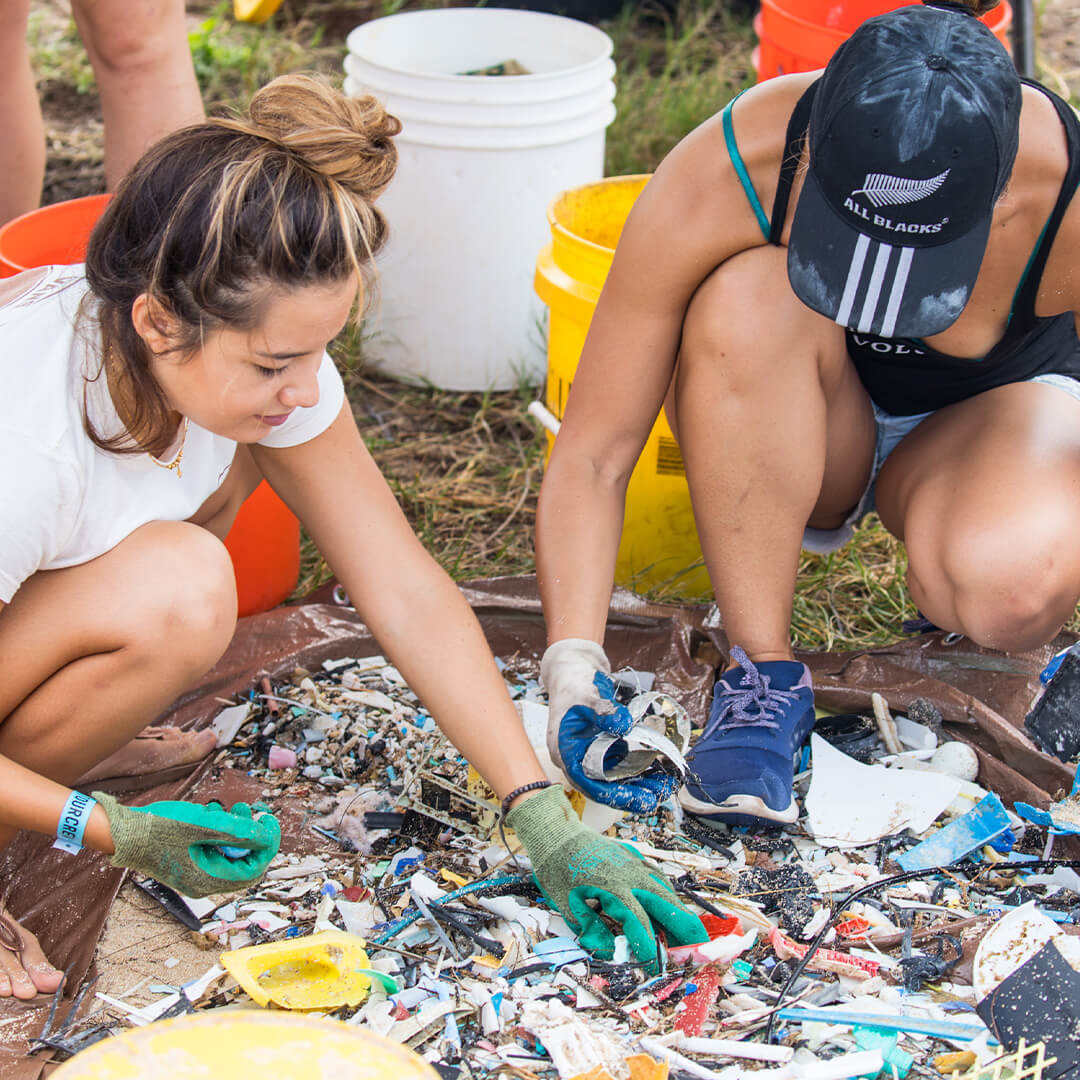Help Surfrider Clean Beaches on the Dirtiest Day and All Year
OUR GOAL: WELCOME 50 NEW MONTHLY DONORS BEFORE JULY 14TH
The fifth of July is the dirtiest day on the beach, and our volunteers are
currently responding by organizing beach cleanups that help remove trash
from coastlines across the country.
Your monthly gift will help Surfrider sustain more than 1,200
volunteer-led beach cleanups throughout the year.
Help Surfrider Clean Beaches on Their Dirtiest Day and All Year
OUR GOAL: WELCOME 50 NEW MONTHLY DONORS BEFORE JULY 13TH
The fifth of July is the dirtiest day on the beach, and our volunteers are currently responding by organizing beach cleanups that help remove trash from coastlines across the country.
Your monthly gift will help Surfrider sustain more than 1,200 volunteer-led beach cleanups throughout the year.
Help Surfrider Clean Beaches on Their Dirtiest Day—and Every Day
OUR GOAL: WELCOME 50 NEW MONTHLY DONORS BEFORE JULY 13TH
The fifth of July is the dirtiest day on the beach, and our volunteers are currently responding by organizing beach cleanups that help remove trash from coastlines across the country.
Your monthly gift will help Surfrider sustain more than 1,200 volunteer-led beach cleanups throughout the year.
If you go to the beach the morning after the fourth of July, you’re likely to see empty cans, plastic utensils, cigarettes, and shreds of firecrackers in the sand.
If you go to the beach the morning after the fourth of July, you’re likely to see empty cans, plastic utensils, cigarettes, and shreds of firecrackers in the sand.
We call the fifth of July the dirtiest beach day because after the fireworks and celebrations fade, and the crowds go home, our beaches end up covered in trash.
This really bums us out! That’s why on the fifth of July each year, Surfrider and our nationwide network of volunteers go all-hands-on-deck to clean up our beaches and prevent trash from being swept into our ocean.
But here’s the thing: We do beach cleanups all year long to protect our ocean because what goes on the beach inevitably ends up in the water.
In a single year, Surfrider runs more than 1,200 beach cleanup events, removing more than 170,000 pounds of trash before it can enter the ocean!
In a single year, Surfrider runs more than 1,200 beach cleanup events, removing more than 170,000 pounds of trash before it can enter the ocean!

Above: Pulling and counting the plastics from that 170,000-pound pile is how we’re able to take on plastic pollution at its source. Credit: Rafael Bergstrom
Surfrider’s beach cleanups do more than just remove trash.
The trash we pick up on beaches – much of it single-use plastics – is collected, analyzed, and reported, so that we can use it as evidence in our advocacy work.
We’ve spent nearly 40 years speaking to government decision-makers on behalf of our ocean, and we’ve learned that data talks. And thanks to our year-round beach cleanups, we have the data to help pass plastic reduction laws and policies. Now we just need your sustaining support to expand our impact.

Above: Pulling and counting the plastics from that 170,000-pound pile is how we’re able to take on plastic pollution at its source. Credit: Rafael Bergstrom
Surfrider’s beach cleanups do more than just remove trash.
The trash we pick up on beaches – much of it single-use plastics – is collected, analyzed, and reported, so that we can use it as evidence in our advocacy work.
We’ve spent nearly 40 years speaking to government decision-makers on behalf of our ocean, and we’ve learned that data talks. And thanks to our year-round beach cleanups, we have the data to help pass plastic reduction laws and policies. Now we just need your sustaining support to expand our impact.
Meet the Monthly Members Who Are Fueling Surfrider’s Work
Meet the Monthly Members Who Are Fueling Surfrider’s Work
“I give monthly to Surfrider in hopes of making a positive impact for our ocean’s health and well-being which directly helps all species on our pale blue dot.”
-Brett
“The ocean brings me peace and joy, and I’ll do whatever I possibly can to keep it protected for all of the other kids who might have felt the way I did growing up…That’s why I donate.”
-Alex
“Surfrider is doing amazing work on behalf of our most precious blue…And you are keepin' at it - no matter what. I applaud all that you do and will support in any way possible.”
-Lee Ann
“I give monthly to Surfrider in hopes of making a positive impact for our ocean’s health and well-being which directly helps all species on our pale blue dot.”
-Brett
“The ocean brings me peace and joy, and I’ll do whatever I possibly can to keep it protected for all of the other kids who might have felt the way I did growing up…That’s why I donate.”
-Alex
“Surfrider is doing amazing work on behalf of our most precious blue…And you are keepin' at it - no matter what. I applaud all that you do and will support in any way possible.”
-Lee Ann
Month after month, we take action to clean and protect our coasts—thanks to supporters like you. In order to keep our year-round beach cleanup operations going, we hope to welcome 50 new monthly members before July 13th. Will you be one of them?
Help fund Surfrider’s community of activists and experts working together to keep our beaches clean 12 months a year.
Help fund Surfrider’s community of activists and experts working together to keep our beaches clean 12 months a year.
P.S. Want to get involved in our cleanup efforts? Find a beach cleanup near you to join!